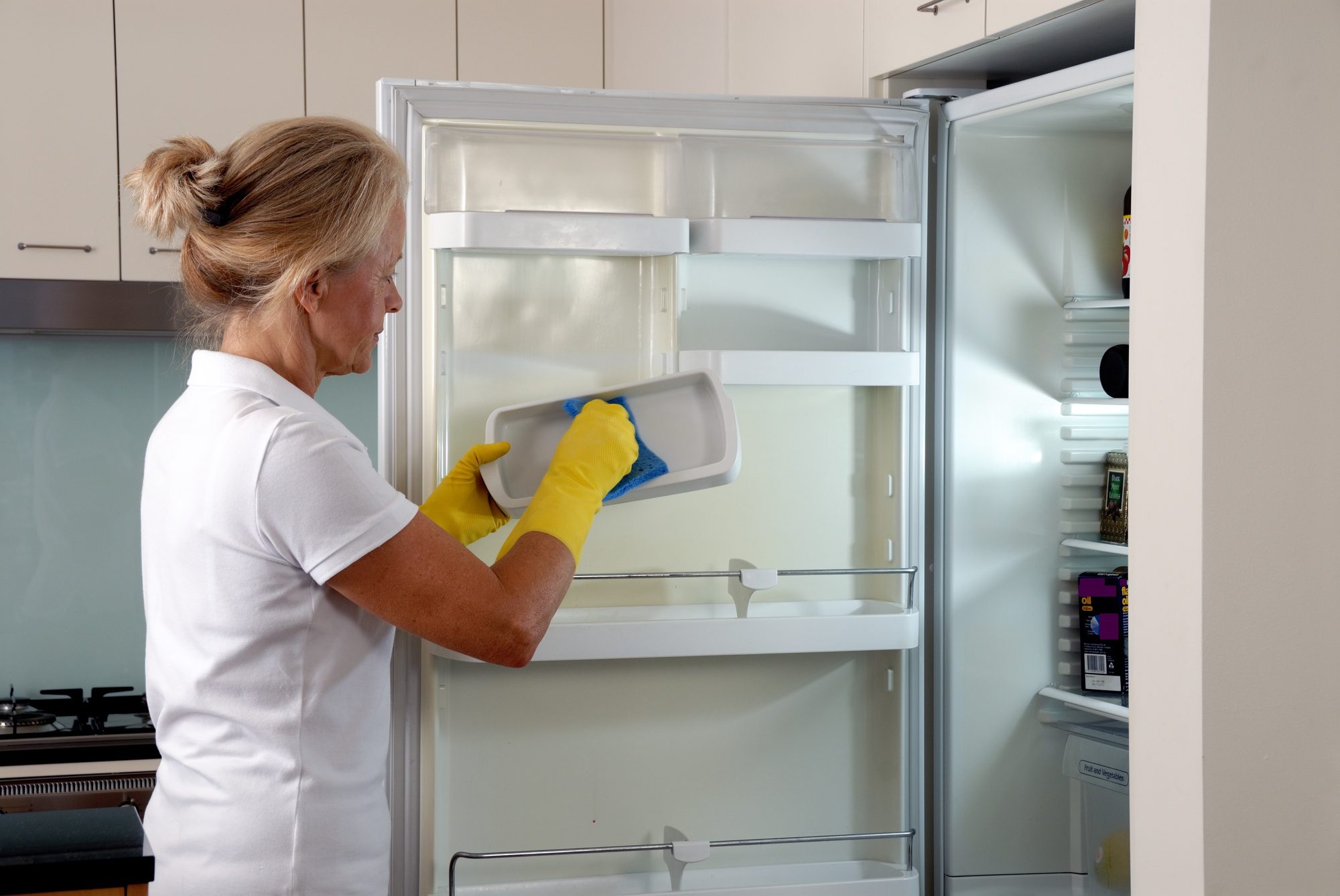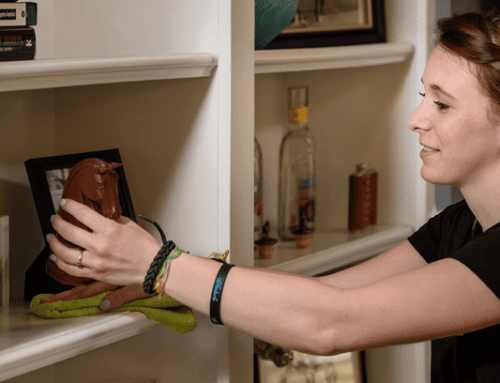Welcome to “The Ultimate Guide to Maintaining a Spotless Kitchen: Top Mops Cleaning Advice.” A clean kitchen is not just visually appealing but also crucial for health and hygiene. In this guide, we delve deep into effective strategies and professional insights to help you keep your kitchen sparkling clean. Whether you’re a seasoned home chef or someone who simply wants to maintain a tidy space, you’ll find invaluable kitchen cleaning tips and tricks here.
Maintaining a Clean Countertop
A clean countertop is the cornerstone of a spotless kitchen. It’s where you prepare meals, so it’s essential to keep it free from bacteria and grime. Start by wiping down the countertop with a mild detergent and warm water. For stubborn stains, use a mixture of baking soda and vinegar. Remember to seal porous countertops regularly to prevent staining and bacterial growth.
Keeping Appliances Shiny and Functional
Appliances like the stove, microwave, and refrigerator are often neglected in regular cleaning routines. However, they can harbor bacteria and odors if not cleaned regularly. Use a gentle cleanser and microfiber cloth to wipe down the surfaces of your appliances. Don’t forget to clean the coils and vents to ensure optimal performance and longevity.
Dealing with Grease Buildup
Grease buildup is a common issue in kitchens, especially around the stove and range hood. To tackle grease effectively, use a degreasing cleaner or a mixture of dish soap and hot water. Scrub the affected areas with a sponge or brush, then rinse thoroughly. For stubborn grease stains, apply a paste of baking soda and water and let it sit for a few minutes before scrubbing.
Eliminating Odors Effectively
Unpleasant odors can linger in the kitchen, making it feel unclean. To eliminate odors, try placing bowls of vinegar or baking soda in strategic locations around the kitchen. You can also simmer citrus peels and spices on the stove to infuse the air with a fresh scent. Regularly emptying the trash and cleaning the garbage disposal can also help prevent odor buildup.
Preventing Mold and Mildew
Mold and mildew thrive in damp environments, making the kitchen an ideal breeding ground. To prevent mold growth, ensure proper ventilation by using exhaust fans and opening windows when cooking or washing dishes. Wipe down surfaces regularly to remove excess moisture, and promptly repair any leaks or water damage.
Deep Cleaning Cabinets and Drawers
Cabinets and drawers can accumulate dust, crumbs, and spills over time, so it’s essential to deep clean them periodically. Empty the contents of the cabinets and drawers, then wipe down the interior surfaces with a mild cleaner. Don’t forget to clean the handles and knobs, as they can harbor germs and bacteria.
Tackling Tough Stains
Stubborn stains on countertops, floors, and appliances can be challenging to remove. For mineral deposits and hard water stains, use a mixture of vinegar and water. For rust stains, try using a commercial rust remover or a paste of lemon juice and salt. Always test any cleaning solution on a small, inconspicuous area first to avoid damage.
Ensuring Food Safety
Food safety is paramount in the kitchen, so it’s essential to clean and sanitize surfaces regularly. Use separate cutting boards for raw meat, poultry, and vegetables to prevent cross-contamination. Wash fruits and vegetables thoroughly before consuming, and store perishable items in the refrigerator to prevent spoilage.
Organizing Cleaning Supplies
Having the right cleaning supplies on hand makes kitchen cleaning more manageable. Keep essential supplies like sponges, brushes, and cleaners in a designated area for easy access. Consider using caddies or organizers to keep everything neat and tidy. Regularly check your supplies and restock as needed to ensure you’re always prepared for cleaning tasks.
Creating a Routine Cleaning Schedule
Consistency is key when it comes to maintaining a clean kitchen. Create a cleaning schedule that fits your lifestyle and includes daily, weekly, and monthly tasks. Breaking tasks down into manageable chunks can make them feel less overwhelming and ensure that nothing gets overlooked.
Sustainability in Kitchen Cleaning
Incorporating sustainable practices into your kitchen cleaning routine is not only good for the environment but also for your health. Choose eco-friendly cleaning products that are free from harsh chemicals and toxins. Opt for reusable cleaning tools like microfiber cloths and sponges, and minimize waste by using refillable containers.
Professional Kitchen Cleaning Services
For those who lack the time or inclination to tackle kitchen cleaning on their own, professional cleaning services offer a convenient solution. Top Mops Cleaning Services specializes in providing comprehensive kitchen cleaning services, using advanced techniques and eco-friendly products to deliver exceptional results. Our team of trained professionals will leave your kitchen sparkling clean, allowing you to focus on what matters most.
FAQs About Kitchen Cleaning
Q: How often should I clean my kitchen? A: It’s recommended to clean your kitchen daily to prevent the buildup of dirt, grease, and bacteria. Deep cleaning tasks like scrubbing the floors and cleaning appliances can be done on a weekly or monthly basis, depending on your needs.
Q: What is the best way to clean stainless steel appliances? A: To clean stainless steel appliances, use a soft cloth or sponge and a mild detergent or stainless steel cleaner. Avoid abrasive cleaners and scrubbers, as they can scratch the surface of the stainless steel.
Q: How can I get rid of stubborn grease stains on my countertops? A: Stubborn grease stains can be challenging to remove, but a mixture of baking soda and vinegar can help break down the grease. Apply the paste to the stain, let it sit for a few minutes, then scrub with a sponge or brush.
Q: What should I do if I discover mold in my kitchen? A: If you discover mold in your kitchen, it’s essential to address it promptly to prevent it from spreading. Wear protective gear like gloves and a mask, then clean the affected area with a mixture of bleach and water. Ensure proper ventilation while cleaning, and consider hiring a professional if the mold infestation is severe.
Q: How can I prevent odors from lingering in my kitchen? A: To prevent odors from lingering in your kitchen, ensure proper ventilation by using exhaust fans and opening windows when cooking. Additionally, regularly clean the garbage disposal, empty the trash, and simmer citrus peels and spices on the stove to freshen the air.
Q: What are the benefits of hiring a professional kitchen cleaning service? A: Professional kitchen cleaning services offer convenience, expertise, and peace of mind. They use specialized equipment and techniques to deep clean your kitchen, ensuring that every surface is thoroughly sanitized and free from germs and bacteria.
Conclusion
Maintaining a spotless kitchen requires time, effort, and dedication, but the results are well worth it. By following the tips and advice outlined in this guide, you can keep your kitchen clean, organized, and inviting for years to come. Whether you prefer DIY cleaning or professional services, Top Mops Cleaning Advice has you covered. Say goodbye to kitchen cleaning woes and hello to a pristine culinary space!





